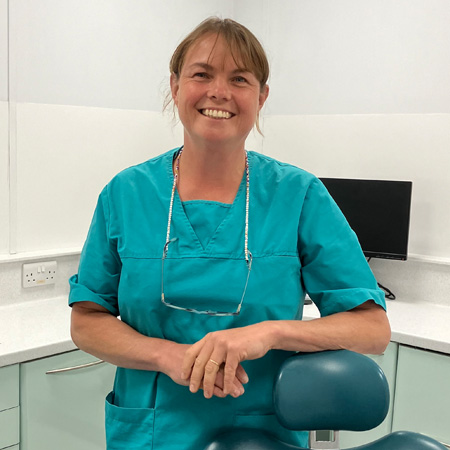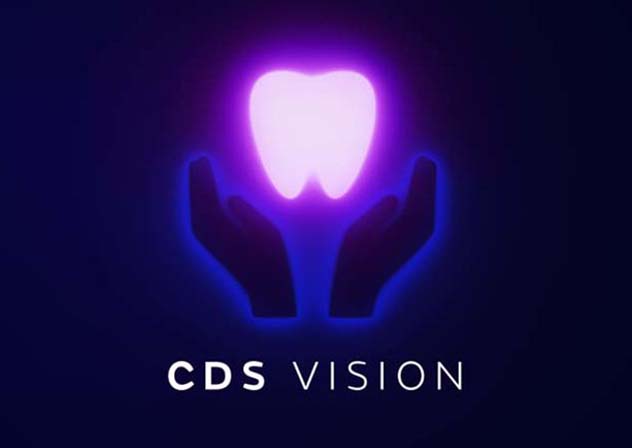As special care clinicians, our roles are not just about performing dental procedures; they often involve navigating the complex needs of our patients. In addition to the direct dental challenges, we frequently encounter patients with anxiety, mental health issues or communication difficulties, such as those who use sign language or face language barriers. Supporting our patients requires both skill and patience and can be both rewarding and challenging for staff.
The emotional impact of the care for our patients can not be underestimated. Some of our patients are extremely sick, some are vulnerable, and some can be physically challenging. I have personally had patients who have threatened to harm themselves whilst in our clinic. In these situations, it is our duty of care to seek appropriate support, for example contacting our colleagues in our internal safeguarding team as well as other external emergency services. This in itself can add further emotional and procedural complexity to our jobs.
In recent years, the use of the internet and social media has increased and this has led to patients or carers having increased access to information about their care. As a result of this there is a growing expectation of access to complex treatments such as orthodontics or implants. This can create a disconnect between what patients expect and what is clinically appropriate, resulting in an increase in the difficult conversations we need to have. Sometimes this leads to accusations made against us of withholding procedures due to discrimination based on an individual’s disability.
In addition to these pressures, post-pandemic backlogs and waiting times have continued to increase, placing additional pressure on the whole clinical team. These significant waiting times have played a role in creating the frustration among patients who are in need of treatment. Also, patient expectations of our service continue to rise which can prove challenging and sometimes difficult to manage.
Tackling patient abuse and supporting our administrative teams
The administrative teams, often the first point of contact with patients, are particularly vulnerable to verbal abuse, especially regarding appointment scheduling and wait times. To address this, staff are encouraged to step away when needed, supported by their colleagues. This protective measure helps mitigate some of the immediate threats staff face.
Additionally, we adhere to the violence and aggression standards in the NHS contract to support both patients and staff and to take steps to both reduce the likelihood of aggression towards staff and take action when it occurs. This includes being clear at the outset of how we expect our staff to be treated by patients and taking action when behaviour falls below the standard expected. These actions include talking with the patient in the moment (if safe to do so), and internal reporting of all incidents. Where necessary we write to patients to explain why their behaviour was unacceptable and undertake further actions as required including reporting to the police if necessary.
The ability to record phone calls received in the service has proven invaluable in managing abusive or aggressive interactions, allowing managers to review conversations and ensure that the response is appropriate and measured. Our consistent, robust approach, coupled with training in de-escalation techniques by reviewing conversations and learning from incidents as they occur ensures that abusive situations are handled effectively and fairly.
In extreme cases, patients can be excluded from our services if their behaviour is consistently violent or aggressive. This is a difficult decision and one that is only taken after following a robust internal process involving specialists from the wider trust.
Over the past two decades, I have witnessed significant changes in how patients interact with healthcare professionals. This is, in part, due to an increase in patient need coupled with a decline in the capacity of the service. When I qualified over twenty years ago, patients might have been occasionally rude or dismissive towards receptionists, but they were typically more respectful towards clinicians. This was not acceptable then and remains unacceptable, however we are now seeing a rise in the instances of unacceptable behaviour towards clinicians as well as reception staff. This is particularly noted when they disagree with our advice or feel frustrated with treatment outcomes.
Safeguarding staff mental health and wellbeing
Mental health and wellbeing support for staff is equally as important as addressing patient needs. A one-size-fits-all approach does not work in our workplace, and we recognise that every individual has unique needs when it comes to support. Some may prefer to speak about their concerns, while others might feel more comfortable with a different approach. This flexibility in how support is offered ensures that everyone has access to the help they need, and the process remains confidential.
At our trust, we have made mental health a priority. We have created a comprehensive support system that includes:
- Professional advocates and buddies: To provide peer support, especially in stressful times
- Coaching: Offering personal development and resilience-building support
- Mental health champions: Staff members who are trained to offer informal support and guidance
- Occupational health and counselling services: For those requiring more structured support
- Wellbeing apps and webinars: Tools to help staff manage stress, improve mental health, and build resilience
- Financial support: Access to external financial assistance during times of hardship.
- Training for managers in supporting their staff wellbeing.
This holistic support network ensures that no one feels alone when facing personal or professional challenges. Additionally, our trust provides specialised support and networks for colleagues living with long-term health conditions, further demonstrating our commitment to the diverse needs of our staff.
Building resilience: A team effort
Building resilience is not just an individual responsibility. It is something that must be supported and fostered at all levels and with the full support of the employer to address system wide challenges. In my training, resilience was not emphasised enough, but I now recognise how crucial it is for clinicians and all healthcare staff.
"Resilience is not about simply "coping”; it involves addressing systemic issues that contribute to staff stress and burnout."
Everyone's resilience is different and can fluctuate depending on external factors, such as workload, personal issues, or external stressors. That is why we must be mindful of our colleagues' well-being and offer help when needed. In those moments when resilience is low, our team steps in to offer support, whether that is through mentoring, peer support, or seeking professional guidance.
We also need to acknowledge that there are external factors, such as under-staffing levels or high patient demand, that can undermine our resilience. It is crucial that we focus on what we can control and find ways to collaborate and share the load. Supporting each other through difficult times, whether in personal life or at work, is key to a sustainable and healthy workforce.
Empowering staff to look after their long-term wellbeing
Ultimately, good mental health is essential for the long-term wellbeing of our teams, and it is our responsibility as leaders to create a working environment where they feel empowered and supported. This is not just about offering a set of resources; it is about fostering a culture where mental health is treated on a par with physical health, and where resilience is nurtured as a team effort.
By ensuring that all staff have access to resources, support, and a clear structure for managing difficult situations, we help protect their mental health now and into the future. Our collective resilience is not just important for us as individuals; it is crucial for providing the best care for our patients.
Despite all the challenges I have described above, the positive impact we have on patients’ lives means that we really make a difference, I can’t imagine a more rewarding job in dentistry.


